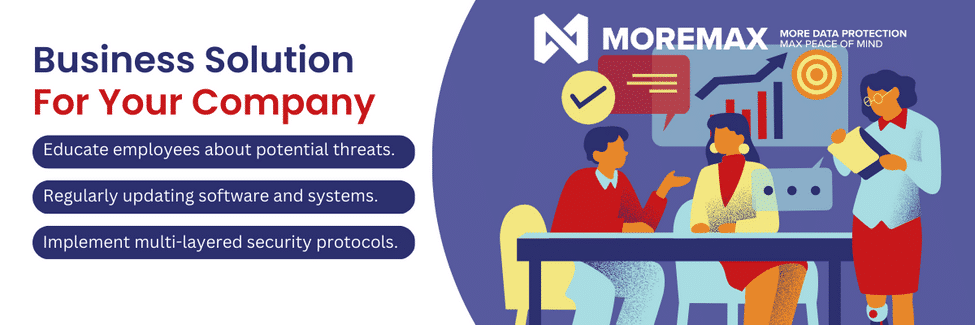
In the age of digital advancement, small businesses have flourished by embracing technology to enhance their operations and reach a broader customer base. However, with these technological benefits comes the lurking danger of cyber attacks, which can wreak havoc on even the smallest of enterprises. Contrary to popular belief, being a small business doesn’t make you immune to cyber threats. In fact, these businesses often become prime targets due to their perceived vulnerability and limited cybersecurity measures.
In recent years, cybercriminals have shifted their focus from high-profile corporations to smaller businesses. The reason behind this strategic shift lies in the fact that smaller entities tend to have weaker security infrastructures, making them easier to breach. Moreover, small businesses often lack the financial resources and expertise to implement robust cybersecurity measures, inadvertently leaving the door open for cyber attackers to strike.
One of the most common cyber threats faced by small businesses is phishing. This devious tactic involves sending fraudulent emails or messages that appear legitimate, tricking employees into divulging sensitive information or clicking on malicious links. Cybercriminals capitalize on the trust and limited awareness within smaller organizations, making them easy prey.
Ransomware attacks are another growing concern for small businesses. Malicious software encrypts critical data, rendering it inaccessible until a ransom is paid. For larger corporations, recovering from such an attack may be more manageable due to their financial capacity, but smaller businesses may struggle to bear the financial burden of ransom demands, leading to potential data loss and operational disruptions.
Moreover, small businesses frequently collect and store customer data. This makes them attractive targets for cyber attackers seeking to steal valuable personal information, which can be sold on the dark web for illicit purposes. A data breach can severely damage a small business’s reputation and erode the trust of its customer base, potentially leading to devastating consequences for their future.

To mitigate the risks of cyber-attacks, small businesses must proactively invest in cybersecurity. This involves implementing multi-layered security protocols, educating employees about potential threats, and regularly updating software and systems. Seeking the assistance of cybersecurity experts like us, can also prove invaluable in identifying vulnerabilities and implementing effective risk management strategies.
In conclusion, no business, regardless of its size, is safe from the ever-evolving threat of cyber attacks. Small businesses must acknowledge this reality and take proactive steps to protect their digital assets and customer data. By investing in robust cybersecurity measures, staying vigilant against emerging threats, and fostering a culture of cybersecurity awareness, small businesses can fortify their defenses and navigate the digital landscape with confidence.


